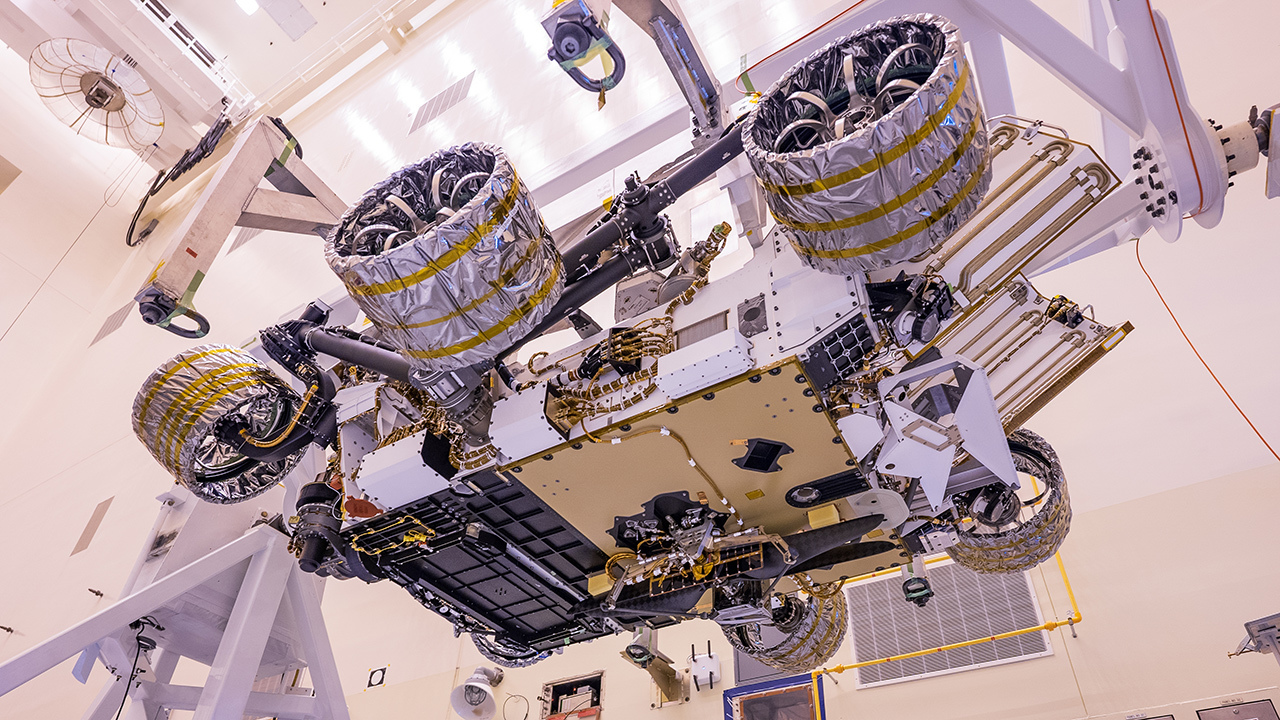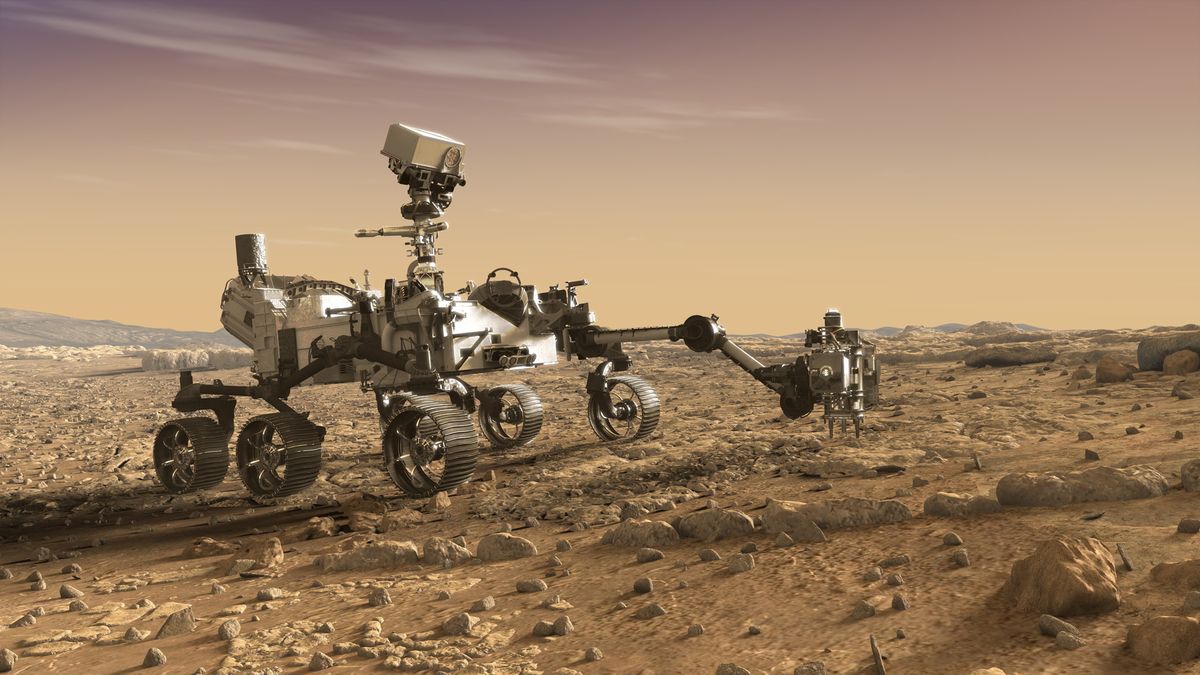
Budget cuts may force NASA's Curiosity rover to slam on the brakes just as it's reaching its highly anticipated home stretch.
The $2.5 billion mission also seeks to shed light on Mars' long-ago shift from a relatively warm and wet world to the cold and dry planet we know today. Gale is well suited for such inquiry; it harbors a 3.4-mile-high (5.5 km) massif called Mount Sharp , whose many rock layers preserve a long history of Martian environmental conditions.
Quite a lot has been going on:
The UAE wants to send people to Mars. But first, a practice round on Earth. | Space

The United Arab Emirates sent its first astronaut to space for a week last fall; the country's next astronaut mission will last longer but remain much closer to home.
"This is our first engagement and involvement in an analog mission," Adnan AlRais, program manager of Mars 2117 at the UAE's Mohammed Bin Rashid Space Centre, told Space.com. "This is going to be our first step in preparing our own experiments hopefully to be conducted on future human spaceflight."
Mars Helicopter Attached to NASA's Perseverance Rover – NASA's Mars Exploration Program

The team also fueled the rover's sky crane to get ready for this summer's history-making launch.
With the launch period of NASA's Mars 2020 Perseverance rover opening in 14 weeks, final preparations of the spacecraft continue at the Kennedy Space Center in Florida. In the past week, the assembly, test and launch operations team completed important milestones, fueling the descent stage — also known as the sky crane — and attaching the Mars Helicopter, which will be the first aircraft in history to attempt power-controlled flight on another planet.
Sols 2747-2748: Driving to 'Glasgow' – NASA's Mars Exploration Program

Today we built a two-sol plan including a 4x4 ChemCam raster on target “Troon” and a 1x10 raster on “Buttery.” Mastcam will take images of those two targets as well as a follow-up image of the ChemCam AEGIS targets from the weekend, a 6x4 mosaic of the planned drill area, and a stereo 2x5 mosaic of target “Alpin.” MAHLI will get a full suite of images (25 cm, 5 cm stereo, and 2 cm) on “Troon.
These blog updates are provided by self-selected Mars Science Laboratory mission team members who love to share what Curiosity is doing with the public.
In case you are keeping track:
I trapped a dog in space in the Mars Horizon beta | PC Gamer

I needn't have worried, however, as Mars Horizon only currently goes as far as the moon. Mars itself will have to wait. That still leaves a lot of steps, from the earliest test launches to putting humans on the unfriendly rock—all while competing with other space agencies.
Mars Horizon has been developed with support from the European Space Agency, which may explain why it's presented as everyone's best bud while the Russians can cut corners and spin failures so that nobody minds if a rocket blows up or a dog goes missing. I should have picked them.
NASA will reveal the new name of its Mars 2020 rover on Thursday | Space

Like NASA's previous Red Planet rovers, Mars 2020 is getting its official moniker via a student naming competition. The contest, which kicked off last year, generated more than 28,000 essay submissions from K-12 students representing every U.S. state and territory, NASA officials said.
That initial pool was whittled down to 155 semifinalists, which in January were culled to nine finalists, three in each of three age categories (grades K-4, 5-8 and 9-12). These nine contenders, and the students who proposed them, are:
NASA's Curiosity Rover Finds Unexplained Oxygen on Mars - Scientific American

NASA’s Curiosity rover, for three Martian years—nearly six years to us Earthlings—has been sniffing the air above Mars’ Gale Crater, its near-equatorial exploration site. Using its Sample Analysis at Mars (SAM) portable chemistry lab, the rover has ascertained not only what the surface atmosphere is made of, but also how its gases change with the seasons.
Many of Mars’ gases “are very well behaved,” says Melissa Trainer, a planetary scientist at NASA and a team member on the SAM experiment. One, however, appears to be behaving in a decidedly unexpected and altogether bizarre manner: oxygen.
The Massive Ice Avalanches of Mars - Eos

Catastrophic ice avalanches may have blasted down kilometers of polar ice craters of Mars at speeds of up to 80 meters per second on at least two occasions.
According to new research, these massive ice avalanches, also called fast running glacier surges, might solve a mystery about strange features on the Red Planet.
Mars is full of strange features like fast shifting sand dunes and surface carbonates . Researchers had long noticed strange, linear features that traveled down the sides of craters in the north polar region. Given that the lines appear to be moraines, researchers "thought they might be from carbon dioxide glaciers, which is super cool and exotic sounding," said Mike Sori , a planetary scientist at the University of Arizona who was not involved in Krasilnikov's study.
Happening on Twitter
Cuts to NASA's Mars Exploration Program in Trump's budget proposal could prompt retreat from the Red Planet—ending… https://t.co/4BzphX1uC8 sciam (from New York City) Thu Apr 30 12:00:08 +0000 2020
NASA budget cuts at Mars threaten 'crisis' for Curiosity rover and prolific orbiters https://t.co/ubGCOgSeHc https://t.co/GImaLnVKVq SPACEdotcom (from NYC) Thu Apr 30 13:27:03 +0000 2020
No comments:
Post a Comment